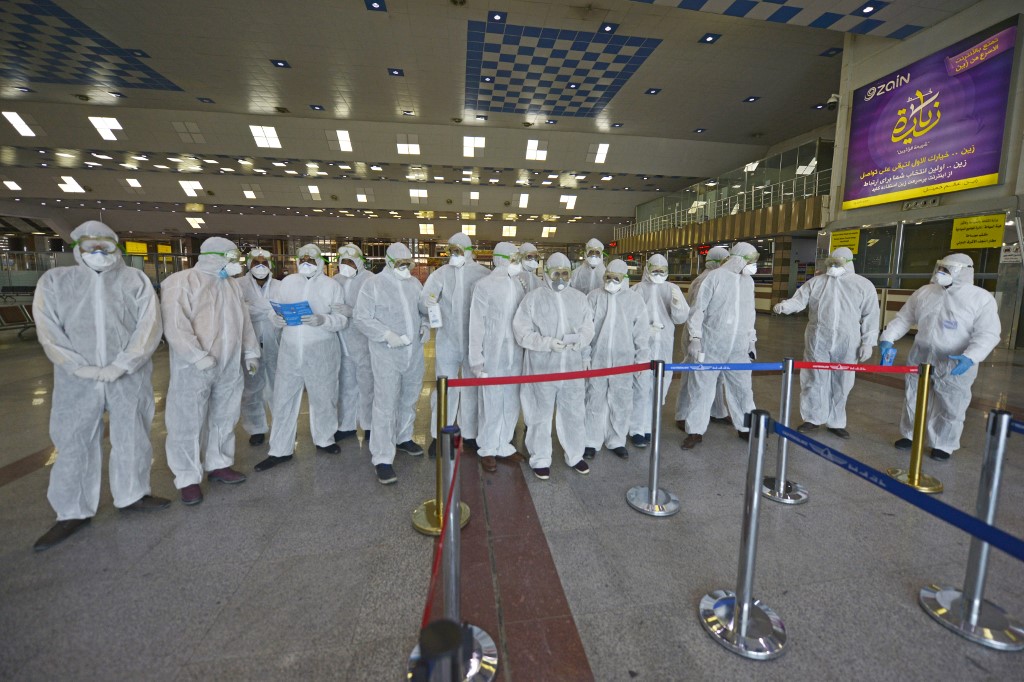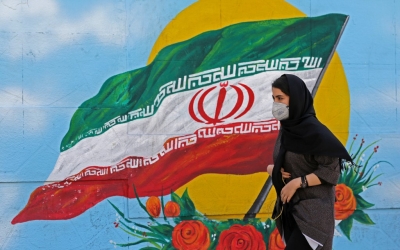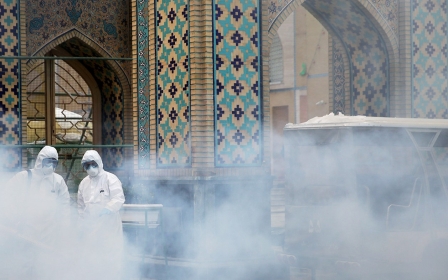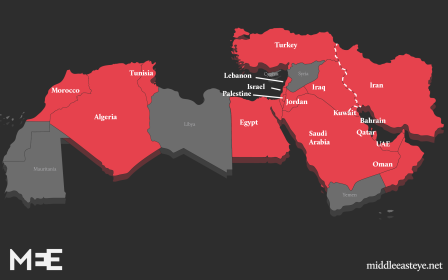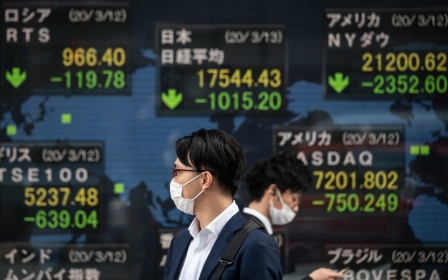Coronavirus: As Iran death toll mounts, Britain must push US to halt sanctions
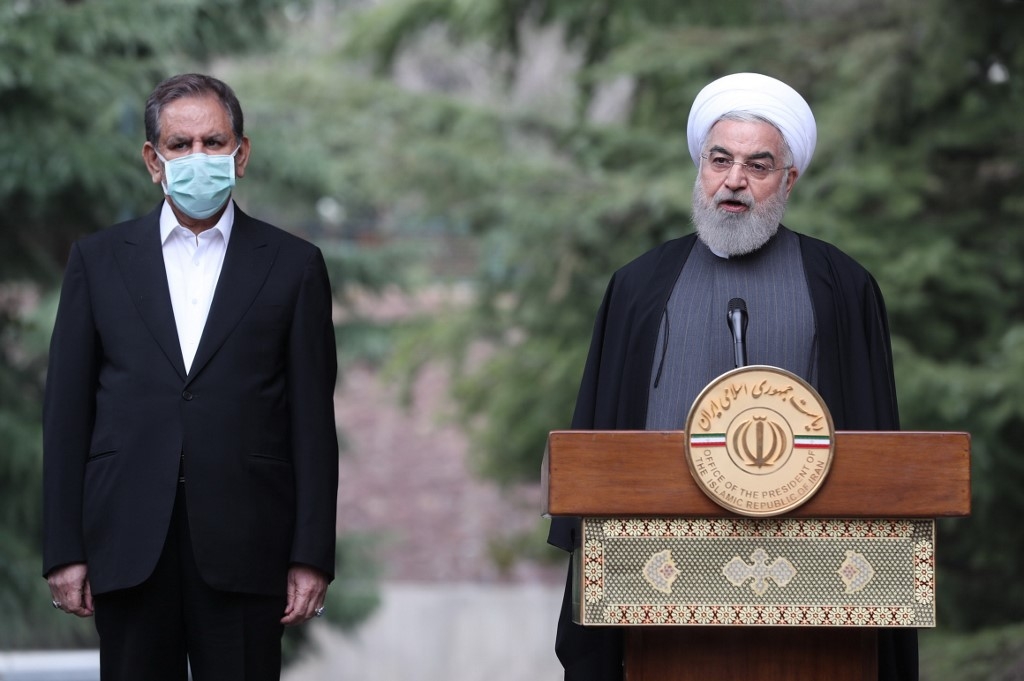
Dominic Raab has not yet made his mark as British foreign secretary. He’s been sidelined on Brexit and made no lasting impression on his recent trip to Oman and Saudi Arabia earlier this month.
However, one strong theme has already emerged: Raab is unwilling in any circumstances, however barbarous and shameful, to upset the United States.
Kowtowing to the US
This became clear when Anne Sacoolas, the wife of a US intelligence officer working at a Royal Air Force base in Northamptonshire, allegedly collided with a motorbike ridden by 19-year-old Harry Dunn on 27 August. Dunn died later in hospital.
Mrs Sacoolas - a former CIA agent herself, according to later reports - claimed diplomatic immunity after the crash and returned to the US.
When the facts emerged, there was national outrage. There were protests. Raab made a feeble attempt to get her back, urging Sacoolas to “do the right thing”. It now appears that she was allowed to leave after Raab’s Foreign Office acquiesced to US pressure.
It looks like US sanctions have led to people dying because pharmaceutical companies can't use the global banking system to finance bringing in drugs
By any natural justice, Sacoolas should face criminal charges in Britain. Thanks in part to Raab’s inertia, she is not going to do so. Raab as foreign secretary is open to the horrifying charge that he places US contempt for justice ahead of the basic rights of British citizens.
There is an irony here. The foreign secretary was a significant figure in the Brexit campaign, which repeatedly claimed to want to restore British national sovereignty. After accusing former Prime Minister Theresa May of capitulating to the EU during negotiations in 2018, Raab said: “We need to be very honest with the country that we will not be bribed and blackmailed or bullied.”
Coronavirus out of control
Such fighting talk has been a glaring omission since Raab assumed his latest cabinet role. Such timidity towards the US has brought about another moment of national shame through Britain’s refusal to confront the Trump administration over its sanctions against Iran during the coronavirus pandemic.
Iran has the third highest number of cases of the virus globally, after China and Italy. On Wednesday, a further 147 deaths were announced, taking the total death toll to 1,135. According to Iran’s health ministry, one person is dying “every 10 minutes” of the disease.
The problem is certain to get much worse. There is no question that Iranian authorities must take some responsibility for the situation getting out of control. Critics say they were slow to act and gave out contradictory messages.
But it’s worth bearing in mind that governments in both Britain and the US, and elsewhere, have found it difficult to respond to the problem.
One should also consider the World Health Organisation’s recent statement from the region, which said Iran’s strategy was “evolving in the right direction” and that “solid work” was being done, especially in the areas of case management, laboratories and risk communications.
Humanitarian assistance
But the severity of the Iranian outbreak is also due to one factor completely outside the control of President Hassan Rouhani and Supreme Leader Ayatollah Ali Khamenei. This is their inability to obtain medical equipment, owing to the US-led sanctions regime.
The US claims its sanctions do not prevent humanitarian aid entering the country. Technically, this may be the case. In practice, it is untrue. No company can finance sales to Iran without falling foul of the US Treasury’s Office of Foreign Assets Control.
I’ve spoken to those trying to arrange humanitarian assistance for Iran. They are trying their best, but any bank wanting to do business in the US knows it will be punished by the US Treasury if it has anything to do with Iran.
Last October, before the coronavirus pandemic, Human Rights Watch noted: “While the US government has built exemptions for humanitarian imports into its sanctions regime, Human Rights Watch found that in practice these exemptions have failed to offset the strong reluctance of US and European companies and banks to risk incurring sanctions and legal action by exporting or financing exempted humanitarian goods. The result has been to deny Iranians access to essential medicines and to impair their right to health.”
It’s worse now, as Iranian authorities are fighting an epidemic with one hand tied behind their back. It looks like US sanctions have led to people dying because pharmaceutical companies can’t use the global banking system to finance bringing in drugs.
Taking the lead
The situation is especially shocking because it is heartbreakingly easy to resolve. All that is required is an executive order from US President Donald Trump to lift the sanctions. They could even be lifted on a temporary basis, and against an undertaking from the Iranians to limit their production of enriched uranium.
But there has been not a word of this from the US, which actually intensified its sanctions on Tuesday.
The alternative is terrible: complicity with Trump's morally damnable and murderous sanctions regime
This brings us back to Raab. It is well understood that Britain is the most important link between Europe and the US.
At this time of terrible crisis, when hundreds of people are dying, the British foreign secretary needs to stand up for decency. If necessary, that means putting public pressure on US authorities to enable Iran to purchase medical supplies immediately. People are dying in large numbers. It is not a situation that can wait for 24 minutes, let alone 24 days.
MEE asked the Foreign Office why Raab had not confronted the US about its Iranian sanctions regime. We also asked why, with the US refusing to budge, Britain wasn't taking an initiative of its own to allow firms to send medical equipment to Iran.
An FCO spokesperson replied: "The UK - and our E3 partners France and Germany - recently offered Iran a comprehensive package of both material and financial support worth €5m to combat the rapid spread of coronavirus. We will continue to support global efforts to combat the outbreak of Covid-19, both in Iran and across the globe."
If the US won’t move, Britain must take the lead in these unprecedented times. The Bank of England could provide bank accounts and credit facilities while indemnifying companies that trade with Iran. That’s the least we can do. The alternative is terrible: complicity with Trump’s morally damnable and murderous sanctions regime.
The views expressed in this article belong to the author and do not necessarily reflect the editorial policy of Middle East Eye.
Middle East Eye propose une couverture et une analyse indépendantes et incomparables du Moyen-Orient, de l’Afrique du Nord et d’autres régions du monde. Pour en savoir plus sur la reprise de ce contenu et les frais qui s’appliquent, veuillez remplir ce formulaire [en anglais]. Pour en savoir plus sur MEE, cliquez ici [en anglais].



